Best Hooks For Salmon Fishing: Hooks For All Methods
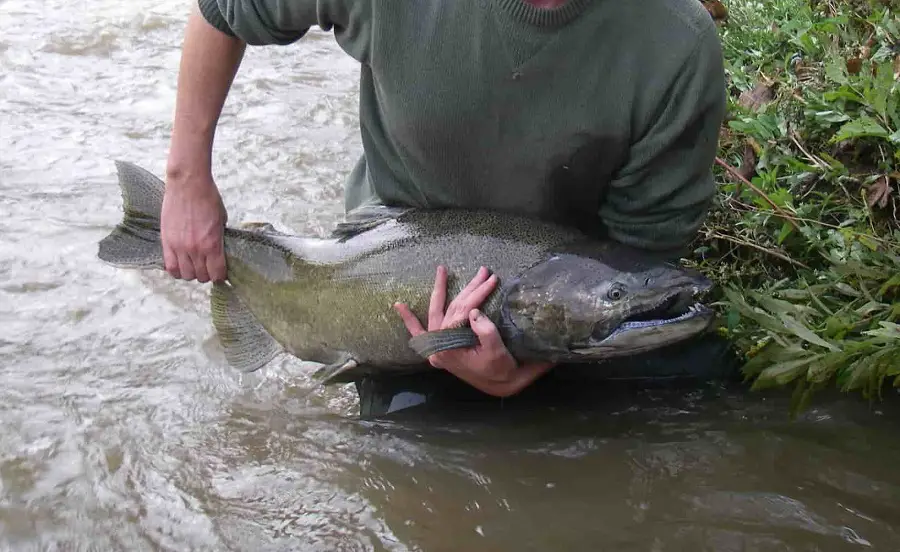
There are many types of hooks and hook sizes for salmon fishing, but the best hooks for salmon fishing will depend on factors such as the size of the fish and the size of the river, your bait or lure choices, and even if you fish for west coast salmon or great lakes salmon.
The best hooks for salmon fishing are Octopus or Specimen type hooks that have a short shank and wide gape, which will aid in penetration and hold better. A great hook will also have a razor-sharp point for optimal penetration. The hook must be thick enough to not break or bend on very large salmon.
You will use different hooks for lures, compared to cut baits and drift-type baits, and using the right hook will improve your fishing experience. I will discuss all of these below.
Types Of Hooks You Can Use For Salmon
There are a few good hook designs that are suitable for big coho salmon and chinook salmon.
Octopus Hook and Specimen Hooks
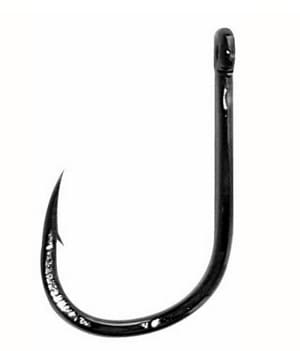
Octopus-style and Specimen hooks are the most common and best hooks for salmon. Most guides I know use these hooks. The best ones are the Raven Specimen hook and the Gamakatsu Octopus hook.
These are good hooks for float fishing and live bait fishing.
Sickle Hook
Many fishermen like to use Sickle hooks, believing that the shape is better for hook penetration and for holding the salmon on the line longer. At first glance, they look like good hooks.
I have tested Sickle hooks against the Octopus style hooks and believe they are good for salmon, but I didn’t notice any difference in more fish or the hookup and holding percentage. Good options are the Raven Sickle Hook and Gamakatsu Sickle Hook. Just be careful; the Raven Sickle hooks are bigger hooks than other brands.
Treble Hooks
Treble hooks are mostly used on salmon lures and have three hook points. I will discuss them more below.
Salt Water Hooks
If you are fishing in the Ocean, many regular hooks will rust out if left wet too long. Therefore, use specially-made saltwater hooks.
What To Look For In The Best Hooks For Salmon Fishing
There are some very specific things that I and other guides and anglers look for in good hooks for salmon fishing.
Hook Size: Matching Hook Size to Bait Size
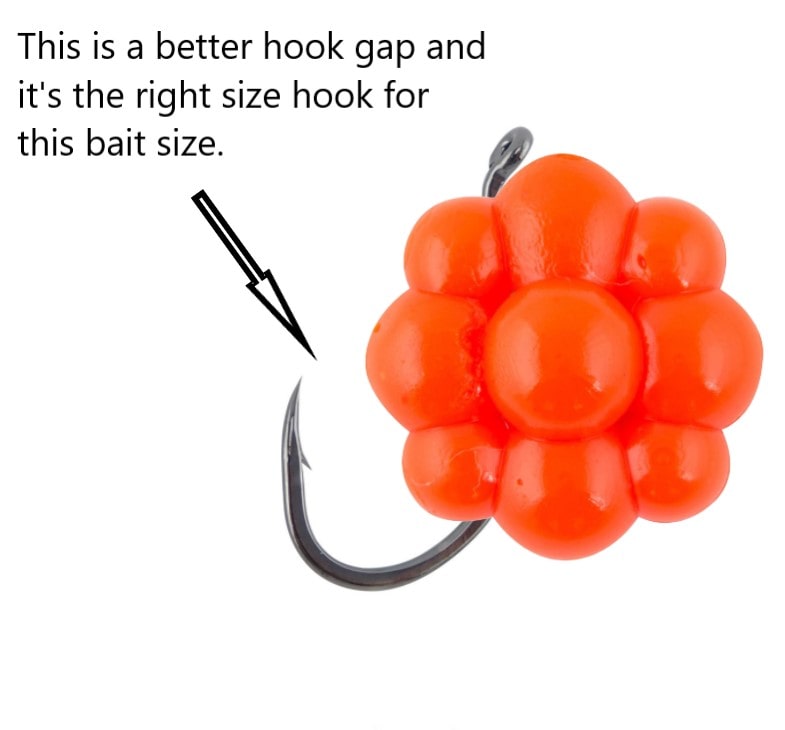
The hook size matters; whether you use a lure or a bait, there is not one hook size that does it all. I discuss hooks for lures below.
I will tell you this: larger hooks tend to hook better and hold on because they grab more flesh and get deeper. Smaller hooks don’t grab as much flesh and tear out easier.
But there are reasons not to use larger hooks.
You should always adjust your hook size to the bait you are using. A small bait requires a smaller hook so the bait moves naturally and is not weighed down, but also so the hook is mostly covered by the smaller bait and is not seen by the salmon. Larger baits require larger hooks.
See below for details on how to match your hook to the bait.
Hook Gape: Wide Is Better
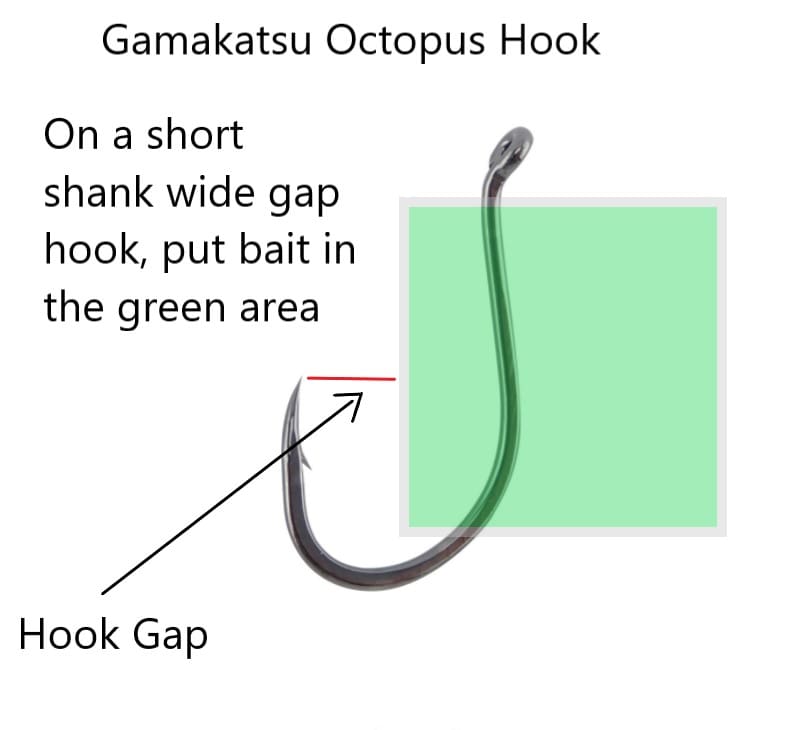
The hook gape or hook gap is an important part of the hook and can dramatically improve your hook-ups on the hook set.
A larger hook gape allows for more space between the hook shank and hook point, improving hook penetrations.
Like many other guides, I find that a larger hook gape also holds onto the salmon longer without ripping out.
Short Shank Hooks Are Best
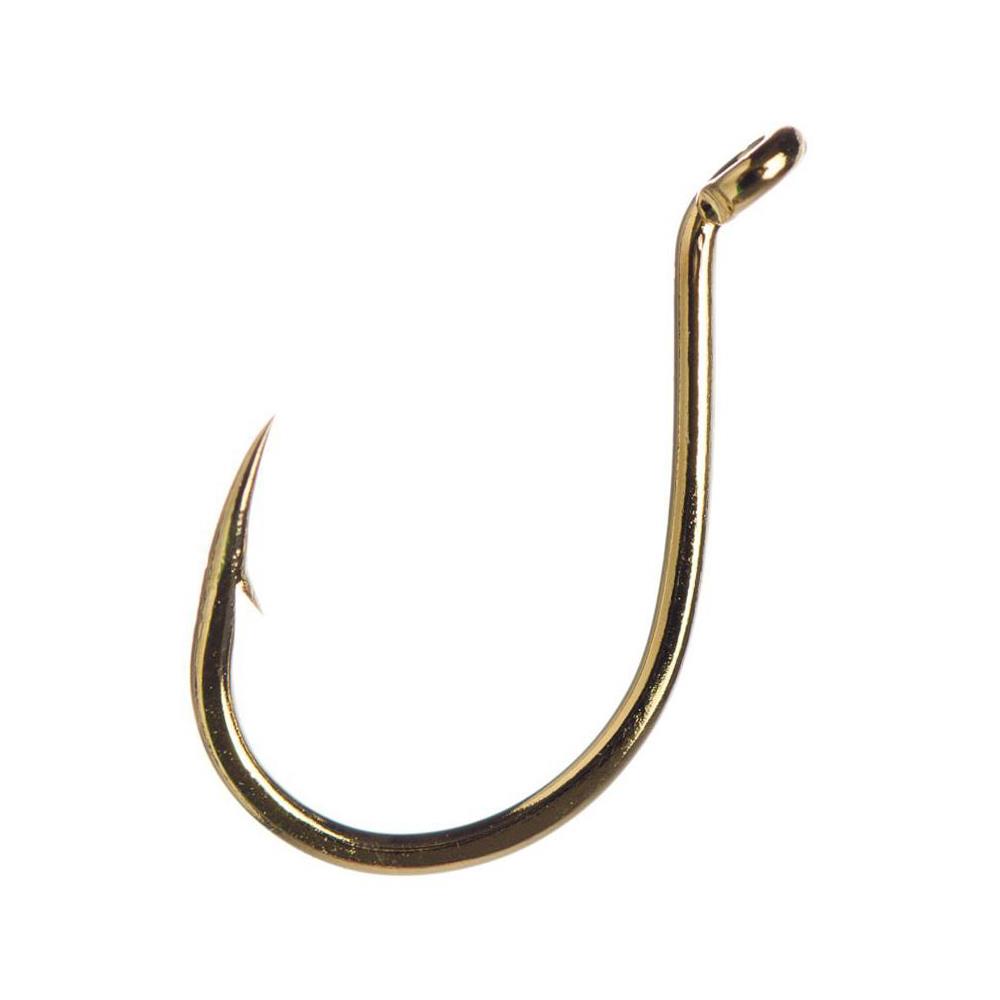
The shank of the hook is basically the length of the hook from the eye to the first bend in the hook. Shorter shank hooks are less likely to be pulled out of the fish’s mouth and tend to hold on longer.
Hook Strength For Salmon: Go For Strong
The hook strength of a salmon hook is critical to salmon fishing due to the overall size and strength of the larger king salmon. Large king salmon will bend or break low-quality hooks.
Stick with a strong hook that is proven and recommended by guides and experienced anglers, and avoid cheap hooks when fishing for large chinook salmon.
Hook Sharpness: Sharper The Better
The best salmon hook will be a fishing hook that uses a chemical sharpening process to ensure the hook is as sharp as possible. It is also imperative to use quality hooks with hardened steel to ensure that the hook point does not lose its sharpness easily when dragged across the rocks.
A sharp hook point is better on large king salmon and their bony jaws. Dull hooks just won’t penetrate as well.
Hook Point: Straight Or Curved?
The right fishing hook will have a slightly bent inward hook point. A hook point that is pointed too much inward may inhibit good penetration even with a hard hook set.
A straight hook point is good on the hook set, but it doesn’t hold on as well and is more likely to tear out on prolonged battles.
You also want to only use hardened steel hooks to that the hook point doesn’t bend or break on the rocks.
Fishing Hook Weight: Lighter or Heavier
The weight of a hook can mean two things, and it is something to consider. The weight of the hook can mean the thickness of the hook, and for salmon, the hook should be only thick enough not to bend or break.
The hook weight can also mean a light hook or a heavy hook. I tend to be more of a finesse fisherman, so I also prefer to go smaller than larger.
The reason for this is that I believe a heavy hook can drag the bait down and into the rocks easier, which can lead to more snags. A heavy hook can also affect the natural drift of a natural bait and make it look natural, leading to fewer bites.
The upside to a heavier hook is that it does get your bait deeper and keeps it deeper, which is often an advantage. However, I prefer to use weights to get depth and use a lighter hook that moves more naturally in the current.
Barbed Hook Vs. Barbless Hooks For Salmon
The debate of whether barbed hooks or barbless hooks are better for salmon will go on.
Barbed hooks tend to hold salmon on longer, especially when they jump or if slack goes in the line.
On the other hand, a barbless hook penetrates better, and many anglers say that if you maintain light but steady pressure, they do not come free.
Many fly fishing anglers use barbless hooks, myself included, and based on my experience, I don’t lose big fish if I maintain tension.
Lost fish is usually the result of slack in the line, or from a hook that hasn’t penetrated deeply, and the flesh holding the hook eventually tears. This can happen on barbed or barbless fishing hooks.
The right hook for you is debatable, but if you want my opinion, for most bait fishing and lures, I use hooks with a barb and don’t have an issue landing fish.
Best Hooks For Great Lakes Salmon
When fishing for Great Lakes salmon, you can use slightly smaller hooks than you would when fishing out west. And, be sure you choose the hook that matches your bait.
I still use the same short shank, wide gape octopus style hooks like Raven Specimen or Gamakatsu Octopus hooks.
Great Lakes salmon fishing on small to medium-sized rivers requires a hook around size 8 or 10 for roe bags and worms.
When fishing medium rivers, a size 4 to 6 is best, and a size 2 to 4 is best when fishing large, Great Lakes rivers.
Best Hooks For Single Salmon Eggs And Tiny Baits
There are a lot of great baits for salmon, but some anglers like to use single salmon eggs. The best hooks for single salmon eggs are smaller hooks, but hooks that are too small will bend.
A size ten or size eight hook is best for salmon eggs that are 8mm to 14mm in size. You want a hook that is small enough that the egg mostly covers it.
Some great hooks for single egg fishing are the Daiichi Salmon Egg Hook and the Gamakatsu Single Egg Hook.
Keep All Hooks Sharp
I highly recommend using high-quality hooks made with a chemically sharpened hook point. However, hooks can get dull dragging across rocks or logs. Sharp hooks penetrate better, and that means more hookups.
I also recommend replacing your hook often or even sharpening your hook with a good hand hook sharpener or hook file.
Salmon Lure Hooks: Matching Hook Gap to Lure Width
Lure fishing for salmon out in the open water, and salmon fishing with lures in the river, is popular. Hooks for salmon lures are usually treble hooks; however, some anglers prefer to use large single hooks, claiming it has a better hook and hold percentage.
Regardless, the hook you use for your lures should be matched to the size of the lure to ensure it does not impede the lure’s natural action. Putting on a larger hook than what the lure comes with out of the package can be a mistake.
You can upgrade your hook to a sharper hook, a stronger hook, or a wider gap hook, but it should be around the same size and weight as the original.
Good treble hooks for salmon are the Gamakatsu 4X Strong Treble Hooks or the Gamakatsu 2X Strong Treble Hooks, or the Owner ST-36 Treble Hooks.
Best Stinger Hooks For Salmon
For some applications and lures, anglers will use stinger hooks to provide extra hooking ability. Single-hook stinger hooks are often slightly lighter with a wide gap. Treble stinger hooks are also used and are good options. Wide gape stinger hooks like the Trokar TK949 Wide Gap Treble Hooks or the Raven Wide Gape Specimen Hooks are good salmon stinger hooks.
Stinger hooks are sometimes used on longer baitfish baits like herring, but can also be used off lures and lures like Spin N Glo’s.
Salmon Hooks Q&A
What Is The Best Size Hook For Salmon?
The best size hook for salmon fishing is a size four hook, which is a good all-around hook size for most conditions and baits. However, the size of the hook will change depending on the size of the bait. Even a very large hook, like a size 3/0, can be used as long as the hook is not too large for the bait.
You may see anglers using these very large hooks when fishing chunks of skein or when fishing larger shrimp/prawns.
Are Circle Hooks Good For Salmon?
Circle hooks are not good for salmon fishing using most salmon fishing methods. The only method a circle hook might be ok to use when still fishing; however, I still prefer a regular bait hook, like an Octopus or Specimen hook.
Can I Use A Treble Hook For Salmon?
Treble hooks can be used to fish for salmon and are mostly used when lure fishing. Some anglers will choose to use treble hooks when using bait, like baitfish, or shrimp, or skein.
What Is The Best Hook For Flossing Salmon?
Generally, a larger wide-gape single hook in size 1/0 to 3/0 is best for flossing salmon. However, I do not endorse flossing, or do it myself, or recommend it, but in some states like Alaska, it is legal to floss salmon, especially Sockeye salmon. However, before you decide to use this method, be sure to check your local fishing regulations.
Does Hook Size Matter With Salmon Fishing?
Hook size is very important for salmon fishing for a few reasons. A larger hook will hold the salmon better and is less likely to bend or break.
A hook that is too large can be too big for the bait, causing it to sink into the rocks and snag more often, or it is more likely to be seen by the salmon, and then they won’t bite.
Are Baitholder Hooks Good For Salmon
Baitholder hooks are not good for salmon fishing since they tend to have a smaller hook gape, which is not as good for penetration, and the extra length makes them more likely to bend, break, and pry out of the salmon’s mouth. This is all based on my observations and testing.
Are Siwash Hooks Good For Salmon?
I am not a fan of Siwash hooks for salmon since most have a long hook shank. I may use a Siwash hook as a singer or for lures like a Spin N Glo, which can benefit from a longer hook, but that is the only time I’d use them.
Best Hooks For Salmon Fishing: Discussion
If you have a question, comment on the best hooks for salmon fishing, or you want to share your favorite salmon hook, let us know in the comments below.
Tight lines,
Graham
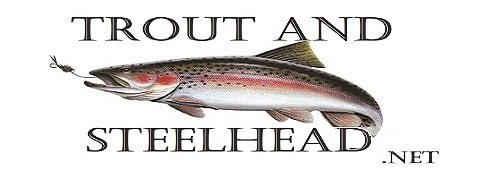
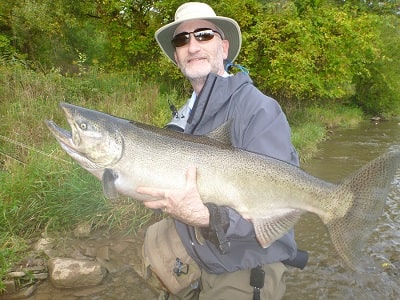

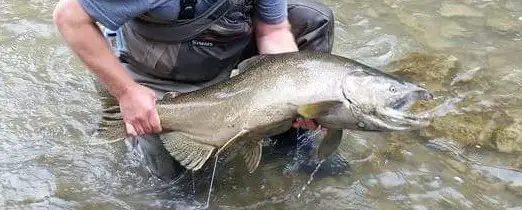
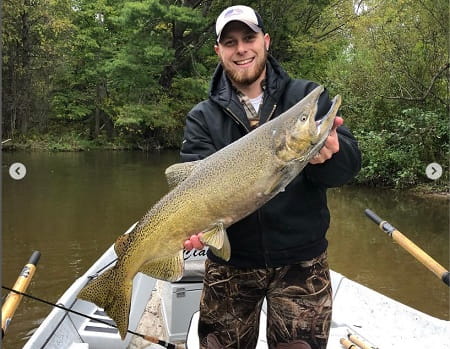
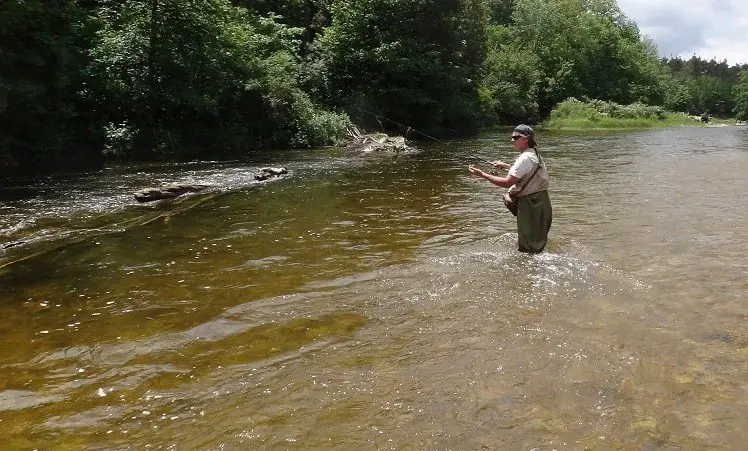
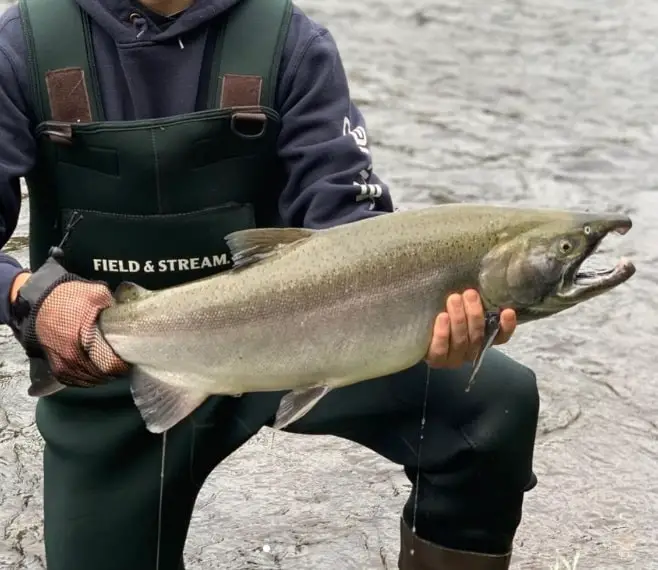
Excellent read…so many folks use the wrong rigging for river and stream fishing.